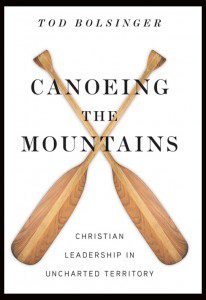
I recently stumbled upon an article with a striking title: “Your Most Powerful Forgotten Weapon: Gratitude.” Written by David Horsager, this article appears on the Forbes website under the theme of “Leadership.” It does seems to me a bit ironic to refer to gratitude as a weapon. Weapons, after all, generally wound or kill people. Gratitude often heals and gives life.
But I get the use of the weapon metaphor in this context. Leadership experts sometimes talk about people having “weapons in their arsenal” or “arrows in their quiver.” Others might prefer “tools in your toolbox.” A leadership weapon is not something meant to hurt somebody, but rather a particular skill or strategy for exercising leadership.
So, in this sense, is gratitude a “weapon” in the leader’s arsenal?
David Horsager says “Yes” in his Forbes article. Writing shortly after Thanksgiving a few years ago, Horsager asserts, “if we think about gratitude only once a year, we overlook the immense power of practicing it daily, especially in a business context.” He lays out some of the benefits of expressing gratitude. In particular, he refers to a study that found that “companies that ‘excel at employee recognition’ are 12 times more likely to enjoy strong business results.”
Horsager’s case for gratitude differs from the one that inspired Monday’s blog post, “Can Gratitude Improve Your Leadership?”. There, I talked about some connections between leadership and gratitude, inspired by another recent Forbes article called, “Great Leaders Have an Attitude of Gratitude – Do You?” The main point of that article was that gratitude inspires positive energy in the people who feel grateful. Horsager focuses, instead, on how leaders can be more effective by sharing their gratitude with others, by saying “Thank you” to those they lead.
Of course we don’t have to choose between expressing gratitude to God and telling others that we are grateful for them. We can – and should – do both.
The Apostle Paul found a way to do both through his letters to his churches. It was common in first-century A.D. letters for writers to acknowledge the gods, perhaps even with a short sentence of gratitude. But Paul expanded upon this prayer, often writing an extended thanksgiving for the letter recipients. In his first letter to the Thessalonians, for example, Paul wrote: “We always thank God for all of you and continually mention you in our prayers. We remember before our God and Father your work produced by faith, your labor prompted by love, and your endurance inspired by hope in our Lord Jesus Christ” (1 Thes 1:2-3).
Like the Apostle Paul, I find that the gratitude I express to people in my workplace begins when I give thanks to God for them. Like many, I generally move quickly in my work, trying to wrestle my imposing to-do list into submission. When I’m busy and stressed, I can easily forget to say “Thank you” to the people who support me and partner with me. Yet, if, in my times of daily prayer, I allow God to guide my prayers for my work, inevitably I find myself feeling grateful for my colleagues. Then, it’s an easy and authentic step to let them know. Sometimes I’ll do this in person. Sometimes, especially when I’m out of town, I’ll do it through email or even a quick text message. (I am grateful for the people in the photo above. This picture was taken when we launched our recent workbook for women, “A Seat at the Table.”)
I know this makes a difference because people tell me it does and because I know how it feels to be on the receiving end of gratitude. Recently, I chose to do something at work that was very costly for me in terms of time. It was the right thing to do, even though my boss had said I didn’t need to do it because of how demanding it was. Yet, when he heard that I was going to do it anyway, he strongly thanked me. And I felt great, great to be affirmed, great to have a boss who noticed and bothered to tell me.
So, in this season of thanksgiving, may I encourage you to thank God for those with whom you work. Then, let them know how thankful you are for them!











